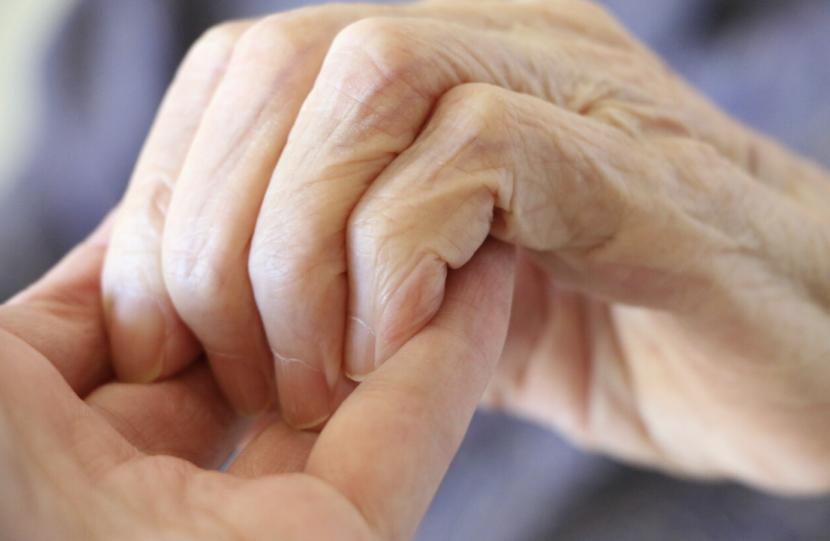Caring for a loved one after the event of a stroke can be an emotional and challenging experience. You may have many questions about the recovery process, how you can support your loved one in their health journey and what post-stroke care will look like in your life.
Through this article we will break down some common questions loved ones may have during this time. We will be explaining the pathways to recovery available to those who have experienced a stroke, how you can support a loved ones’ stroke recovery and how assisted living facilities and specialist nursing can offer support during this process.
At The Hollies, we understand the challenges that can arise during the stroke recovery process. Within our assisted living and care home, our staff work tirelessly to support our residents and their families through recovery journeys offering respite stays as well as long term supported living provisions.
How long does it take to recover from a stroke?
The timeline of stroke recovery can vary in every case. In most cases the severity of the stroke will dictate how long it may take to recover, ranging from a few months to multiple years.
A common occurrence during the road to recovery from strokes is a plateauing effect. In the immediate three months following a stroke, there tends to be a lot of progress made which then slows down at a certain point. In some cases it may take years to recover certain movement or cognitive functions, in others they may never return to complete mobility or brain function.
This should not discourage carers and loved ones when supporting someone recovering from a stroke. Recovery may not always occur in a single straight line, some deviations can be expected along the way.
Best way to recover from a stroke
There are a variety of therapies offered and encouraged during the stroke recovery phase. From regaining physical strength to rebuilding neural pathways, all of these recovery methods and stages will be important in supporting your loved one’s health journey.
Physiotherapy
This may take place in a hospital or be conducted at home in exercises suggested by a medical practitioner.
At The Hollies our team of nurses are experienced in supporting physiotherapy exercises, ensuring our residents maintain their schedules. With visiting physiotherapists and chiropodists, those recovering from strokes in our care have many of the therapies they need for improvement close at hand and provided by familiar faces.
Memory building exercises (cognitive rehabilitation)
Through cognitive rehabilitation exercises, those who have experienced a stroke can work to rebuild memory functions that may have been impaired due to the stroke.
Speech therapy
In the aftermath of a stroke, many will experience changes in their mouth’s function should the muscles in their face have been impacted. Conducting physiotherapies focused on the mouth will help regaining independence with speech and swallowing among other things.
Emotional support and therapies
This can be in the form of talk therapy or CBT and can be essential to help your loved one to manage their feelings about living with the effects of a stroke, to maintain their resolve during recovery and to help release the emotions and worries that experiencing a major medical event can cause.
How to help someone who has had a stroke: post-stroke care
There are many ways to provide support for someone in your life who has experienced a stroke.
Be encouraging – continued support, presence and a listening ear can be vital in the road to recovery from a stroke.
Include them within the normal community and family role – providing a loved one in recovery with a sense of normality and purpose can be exceptionally beneficial for their journey.
Have patience – The road to recovery can be a long one, focus on maintaining hope for your loved one’s recovery and encouraging them at every step.
Learn to take a step back when you can – encouraging independence for your loved one who has experienced a stroke can be an exceptionally important thing progressing their recovery.
Seek support yourself – It can be very easy to burnout through the process of caring for a loved one. Seek out respite care stays for your loved one if you are in need of a break and make full use of support groups and other community resources for stroke recovery.
Remember, these forms of support and care will be vital in the short term, but will also be crucial to maintain in the long term for sustained and effective recovery.
Personalised post-stroke Nursing Care at The Hollies
The Hollies provides 24-hour nursing care tailored to stroke recovery, with personalised care plans and a compassionate team supporting physical and emotional well-being. Our care team coordinates with medical care professionals to ensure all your health needs are met and considered within your stay.
By staying at The Hollies through recovery, your loved one will feel the comfort of home with the support of medicalised recovery assistance.
Specialist Nursing Care services at The Hollies
The Hollies offer a range of care services that provide a safe and comfortable environment that supports stroke recovery. With our range of en-suite rooms, mobility support infrastructure and supportive staff, our residents truly feel at home.
To discover more about how we can support you or your loved ones through stroke recovery, explore The Hollies Nursing Care Services.
We offer respite stays, providing a break for carers, giving you peace of mind should you be unable to fulfil caring duties for a loved one in stroke recovery.
To understand more about stroke recovery care provided at The Hollies, please do get in touch with our team by calling us at 01453 541400 or sending an email to info@thehollies.co.uk.

